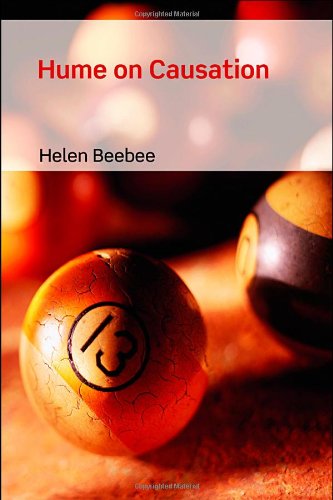

Most ebook files are in PDF format, so you can easily read them using various software such as Foxit Reader or directly on the Google Chrome browser.
Some ebook files are released by publishers in other formats such as .awz, .mobi, .epub, .fb2, etc. You may need to install specific software to read these formats on mobile/PC, such as Calibre.
Please read the tutorial at this link. https://ebooknice.com/page/post?id=faq
We offer FREE conversion to the popular formats you request; however, this may take some time. Therefore, right after payment, please email us, and we will try to provide the service as quickly as possible.
For some exceptional file formats or broken links (if any), please refrain from opening any disputes. Instead, email us first, and we will try to assist within a maximum of 6 hours.
EbookNice Team

Status:
Available4.5
41 reviewsHume is traditionally credited with inventing the ‘regularity theory’ of causation, according to which the causal relation between two events consists merely in the fact that events of the first kind are always followed by events of the second kind.
Hume is also traditionally credited with two other, hugely influential positions: the view that the world appears to us as a world of unconnected events, and inductive scepticism: the view that the ‘problem of induction’, the problem of providing a justification for inference from observed to unobserved regularities, is insoluble.
Hume on Causation is the first major work dedicated to Hume’s views on causation in over fifteen years, and it argues that Hume does not subscribe to any of these three views. It places Hume’s interest in causation within the context of his theory of the mind and his theory of causal reasoning, arguing that Hume’s conception of causation derives from his conception of the nature of the inference from causes to effects.